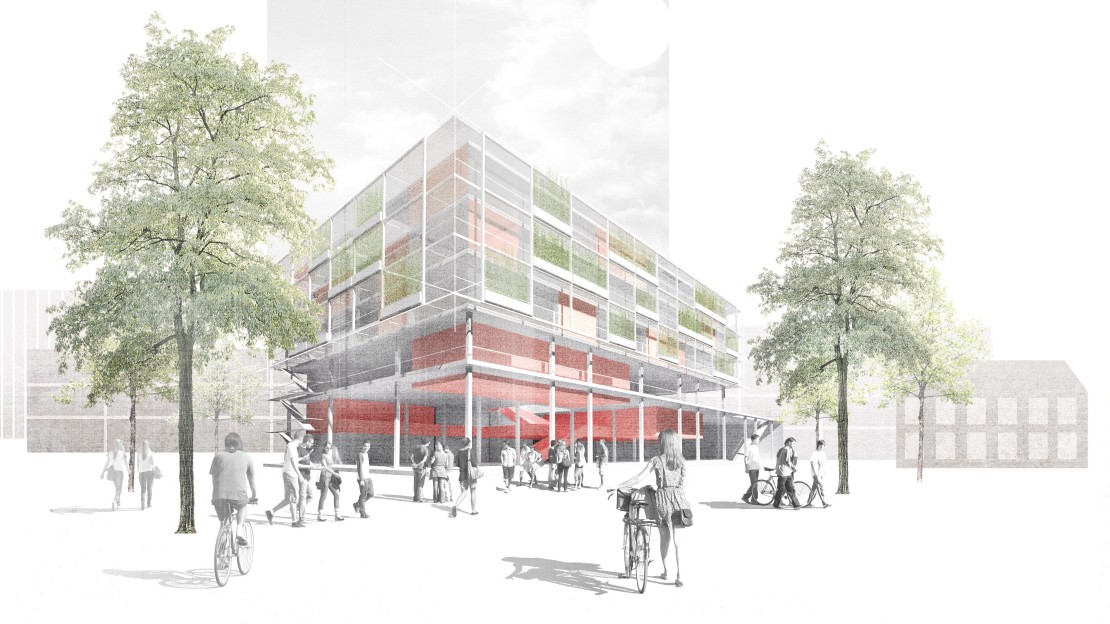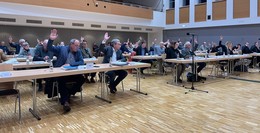In view of the enormous financial problems, the Starnberg district administrator Stefan Frey at least initially questions the long-planned new construction of a technical college (FOS) in the district town. In the Committee on the Budget, he debated “whether we should start construction immediately or wait and postpone it”.
This is a project with a volume of around 70 million euros. A postponement would mean the school would have to contend with temporary buildings in the commercial area for a longer period of time. But it hasn’t been decided yet. Either way, planning could be done.
It wouldn’t be the only item saved. District government and policymakers are scouring the entire budget for opportunities where spending can be cut. The reason is that, among other things, the war in Ukraine and its effects are placing huge additional burdens on the public purse. Again, Frey made it clear during the meeting how dramatic the situation is: “We have never faced a situation like this in the history of the district. And now we have to meticulously question every task of the house. That’s where it comes down to business.”
“We get to work”: District Administrator Stefan Frey’s funds are not spared when it comes to saving.
(Photo: Georgine Treybal)
District councils already started on Wednesday. Behind closed doors, local politicians examined the budget point by point late into the night, always looking for savings. “Without political show,” as the district administrator put it. This is important to him in this emergency situation: that discussions take place without an audience and therefore without fear of the reactions of officials and interest groups. After all, anyone who shuts down bus lines or cuts youth work benefits is not making themselves popular. According to Frey, around 150,000 euros have already been canceled in the first round. Next Thursday we will continue with the string concert, again without an audience.
The governor himself is no exception. His funds will also be reduced. This is money that he can spend freely and without a decision from the district council. According to management’s proposal, the originally envisaged item of 25,000 euros should be reduced by 5,000 euros.
It also emerged once again that there is likely to be a turnaround in transport policy. The bus network, which has been expanded and more closely connected in recent years, is now experiencing major gaps again. “Empty buses are running. We need to think about how to make the system more efficient,” Frey said.
Electricity costs alone increase fivefold
There are numerous additional tasks and expenses that are now causing so much financial trouble for the district. In the case of social assistance, basic security or host school contributions alone, millions have to be raised, as treasurer Stefan Pilgram calculated for the committee members. Refugees from Ukraine cost a lot of money, the Munich Transport and Fare Association (MVV) wants more and personnel costs are rising. Also noteworthy is the consumption of electricity. According to the draft budget, spending on this will increase fivefold, from 180,000 to 900,000 euros.
For a week the mayors have known what awaits them. The district manager has invited them to exchange with the chamberlains. After all, it ultimately falls to the municipalities when the district needs more money, as it does now. The district fee will be increased, so next year almost all treasurers will have to transfer more money to the district office than before. Some of the sums involved are considerable, as an overview by District Treasurer Stefan Pilgram shows. Gauting, where it is worth two million euros more, is the hardest hit; in Gilching, Tutzing, Seefeld and the city of Starnberg the surcharge is of the order of one to almost 1.8 million. Wessling and Pöcking have to pay less than before.
“I am perplexed,” says the mayor of Pöcking
As municipalities start planning their budgets in the coming weeks, cuts can also be expected. Since municipalities have little leeway with their mandatory tasks, these are voluntary services. Then it often affects grants to clubs. The mayor of Feldafinger Bernhard Sontheim, for example, had already announced at the beginning of October, when the financial problems became known, that he would propose to cancel all voluntary benefits. The communities have the same problems as the district, Pöckinger mayor Rainer Schnitzler said in the budget committee: “I am puzzled and speechless. I don’t know how we should do it.”
But the district cannot get as much money from its municipalities as it needs to pay for the large investments planned in the coming years. The funds go mainly for the new clinic and the new high school in Herrsching. In order to pay for all of this, the district has to borrow money again for the first time in many years. According to financial planning, the debt will rise from zero euros to nearly 90 million euros by the end of next year. This would mean that Starnberg would outsell all neighboring districts within a single year.


